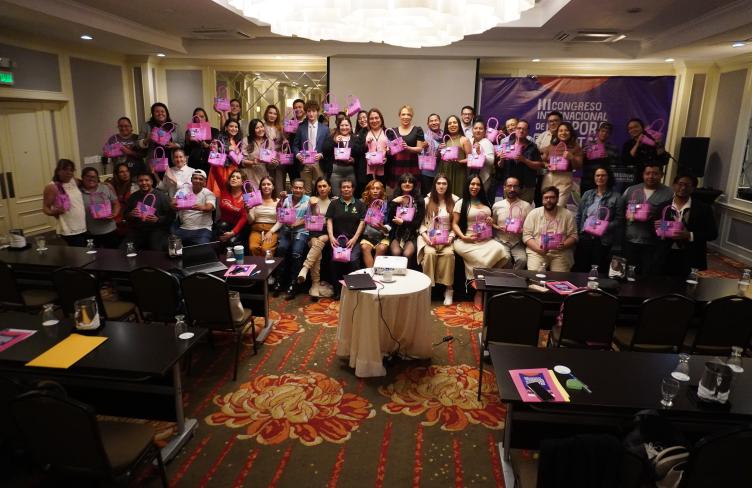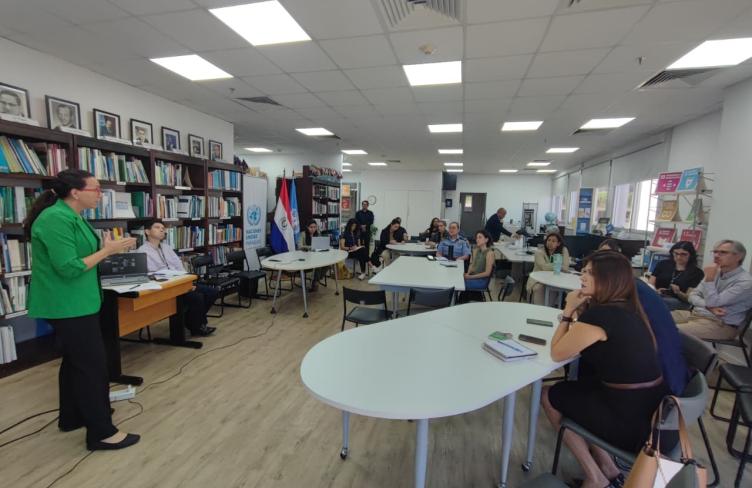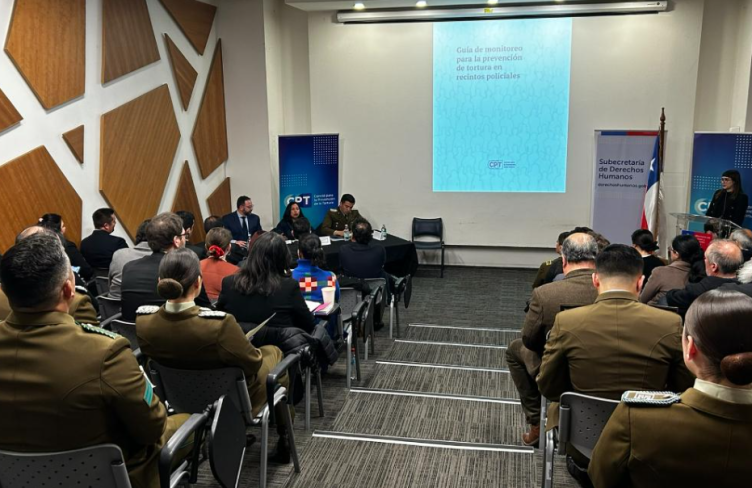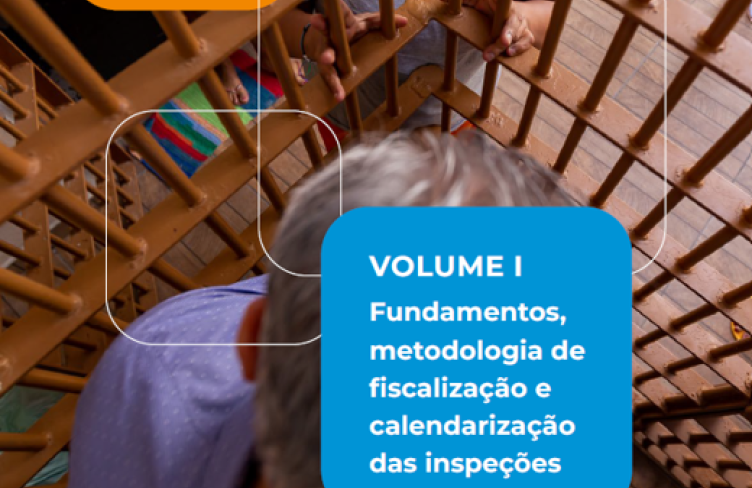
Latin America has a strong regional human rights protection system, comprising the Inter-American Commission on Human Rights, in Washington DC, and the Inter-American Court on Human Rights, in Costa Rica.
The region was a strong supporter of development and adoption of the Optional Protocol to the UN Convention against Torture (OPCAT), with Costa Rica playing a pivotal role. It filed the first draft in 1980 and, after filing the second draft in 1991, chaired the working group drafting the text. All 17 countries in Latin America (as defined by APT) have ratified the UNCAT, and 14 of them have also ratified the OPCAT and established National Preventive Mechanisms (NPMs).
From 2009 to 2018, the APT supported OPCAT implementation in the Americas from our regional office in Panama. During this time, we supported OPCAT State Parties with the designation and establishment of NPMs and Local Preventive Mechanisms (LPMs) in federal states.
We support NPMs in their work, through bilateral training and advice, as well as through regional workshops and exchanges. We also provide advice and support on torture prevention measures to other stakeholders in the region, such as the judiciary, public defenders' offices, National Human Rights Institutions) and civil society organisations.
Regional activities
APT has organised several regional workshops with NPMs, with a focus on supporting their work to monitor the first moments of detention. We have also published a series of documents on Safeguards to Prevent Torture in Police Custody in Latin America to identify the main risks in police detention, and best practices in implementing safeguards, such as access to a lawyer and access to information on rights, among others.
An important part of our work is to strengthen a gender perspective in criminal justice systems and to improve attention to persons deprived of liberty at heightened risk of torture and ill-treatment. We joined forces with 12 NPMs in a unique contribution to the Inter-American Court of Human Rights about the situation of LGBTI+ persons deprived of their liberty, to support the drafting of the Court’s Advisory Opinion 29/2023 on differentiated approaches to deprivation of liberty published in 2023. We also raise awareness on the situation of indigenous women and on the situation of persons of Afro descendent within the criminal justice system.
Through our Anti-torture Legislation Overview, prepared in partnership with the Convention Against Torture Initiative (CTI), we contributed to the first regional snapshot of how Latin American countries legislate against torture.
We supported the Network of National Human Rights Institutions (RINDHCA) in the creation of their working group on torture prevention. This cooperation continues, for example in support to RINDHCA publications such as their 2025 guide on monitoring in the context of human mobility. We have also collaborated with the Ibero-American Ombudsman Federation (FIO) and the German Development Cooperation to contribute to the effective functioning of Ibero-American Ombudsman Institutions with an NPM mandate.
Priority countries
Brazil
Brazil has been a priority country for the APT since 2005 and remains so under our 2025–2028 strategic plan due to the depth of work underway across all three strategic goals, and the country’s significance as a regional and global actor. After a challenging political period and a landmark ruling by the Federal Supreme Court about Brazil’s NPM, the federal government has renewed its commitment to torture prevention, creating momentum to strengthen both national and local institutions.
APT promotes effective oversight of the deprivation of liberty, including through technical assistance to existing preventive mechanisms and fostering the expansion of local preventive mechanisms (LPMs). From 2023 to 2024, four new LPMs became operational, with two more expected in 2025. While this progress is encouraging, only seven of Brazil’s 27 states have functioning LPMs, many of which are under-resourced. This makes continued engagement both urgent and impactful.
The APT has also led the development of a new methodology of judicial inspections of prisons, in partnership with the National Council of Justice. This initiative led to the elaboration of a set of manuals and tools that will be adopted by over 1,300 judges across Brazil. For the first time, the judiciary will have a standardised, rights-based framework to carry out its legal mandate of conducting monthly inspections of detention facilities in a systematic and effective way.
To help strengthen dignity and fairness in the criminal justice system, APT has concentrated its efforts on the implementation of legal and procedural safeguards during the initial stages of detention. In partnership with the National Council of General Public Defenders (Condege) and civil society organisations, the APT-led Observa Custódia platform collects and publicises data on detention control hearings and the adoption of legal safeguards in every state. Furthermore, the dissemination of the Méndez Principles among police and legal professionals encourages the greater adoption of safeguards and non-coercive, rapport-based interviewing.
APT contributes significantly to the safety and protection of people at heightened risk deprived of liberty, especially in addressing the intersection of race, gender and sexual orientation, poverty, and torture. Brazil has the third-largest prison population globally, with disproportionate representation of marginalised groups, particularly people of African descent. APT’s work intersects with the UN Expert Mechanism to Advance Racial Justice and Equality (EMLER), and builds on past initiatives related to LGBTIQ+ persons and women in detention.
With staff [SD5] based in Brazil, solid partnerships with institutions and CSOs, and access to domestic and international funding, APT is well placed to continue fostering impactful, systemic change. The country’s influence in Latin America ensures that progress here has the potential to reverberate regionally.
Chile
Chile remains a priority country for APT, with progress and interest across all three of our strategic goals. The Comité para la Prevención de la Tortura (CPT), Chile’s National Prevention Mechanism, which is housed in the National Human Rights Insitute, plays a central role in ensuring oversight of the deprivation of liberty. APT has worked closely with the CPT to support detention monitoring, particularly in the context of police custody.
As concerns actors in the criminal justice system, APT has conducted training sessions with the Carabineros (Chile’s national police force) and collaborated on strengthening safeguards in the early stages of detention. The CPT’s dedicated unit for monitoring police custody is a promising model for targeted institutional change. Chile’s role as a core state in the Convention Against Torture Initiative (CTI) and its interest in promoting the Méndez Principles - both nationally and regionally -demonstrates its leadership on preventive approaches.
Chile has also made important strides concerning the protection of persons at heightened risk. The APT has supported various initiatives focused on transgender women deprived of liberty, including efforts to implement Resolution No. 5716 of the Gendermaría de Chile, and to promote the use of non-custodial measures for persons most at risk.
Chile’s political stability, proactive foreign policy, and consistent engagement with international human rights mechanisms make it a valuable partner for torture prevention work. The CPT’s involvement in regional initiatives enhances Chile’s standing as a model for peer learning and NPM-to-NPM cooperation.
Uruguay
Uruguay is a new priority country under the APT’s 2025–2028 Strategic Plan.
APT supports Uruguay’s justice reform agenda, which has focused on reducing overcrowding, improving material conditions, and addressing the mental health needs of persons deprived of liberty. The National Preventive Mechanism has also expressed strong interest in implementing the Méndez Principles in collaboration with national stakeholders.
There is a growing domestic momentum - particularly from the NPM - for introducing comprehensive anti-torture legislation that fully complies with the UN Convention Against Torture. Uruguay’s existing definition of torture is limited to crimes against humanity, highlighting a legal gap APT is well placed to help close.
Uruguay’s NPM has made significant strides in developing gender-sensitive and inclusive monitoring approaches, including safeguards around mental health in detention. APT work with the NPM includes follow-up in these areas.
Uruguay’s political stability, international credibility, and active participation in global and regional human rights mechanisms make it an ideal country for sustained engagement and positive example-setting for others in the region, and beyond. APT’s trusted relationship with the NPM and other key stakeholders provides a solid basis for impactful work across our strategic plan’s priorities.
Latest news from the region

Latin America: How strategic collaboration can drive the fight against torture of LGBTI+ persons deprived of liberty
Friday, February 20, 2026
Paraguay: National Preventive Mechanisms Special Report on the situation of children and adolescents with parents in prison
Wednesday, November 26, 2025


